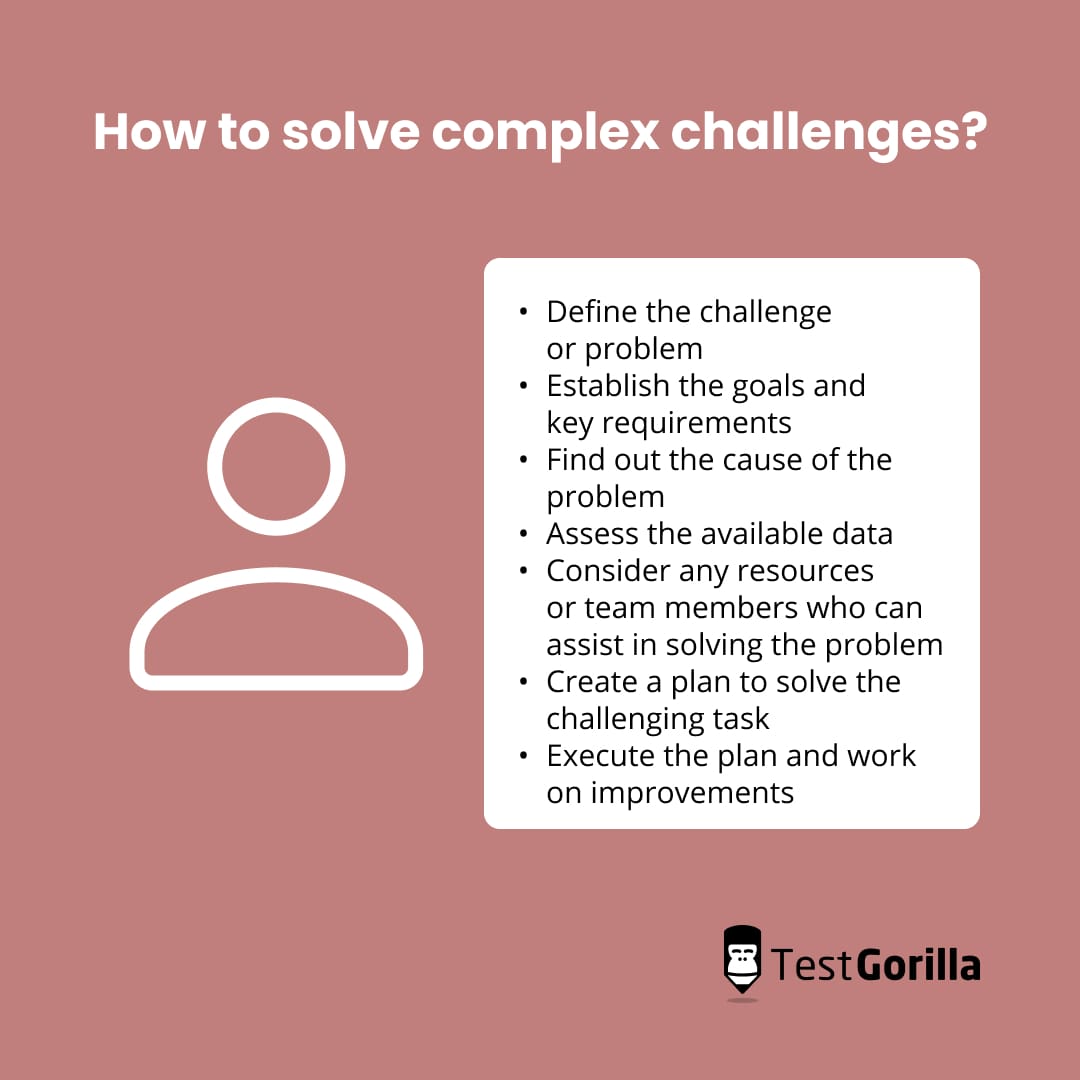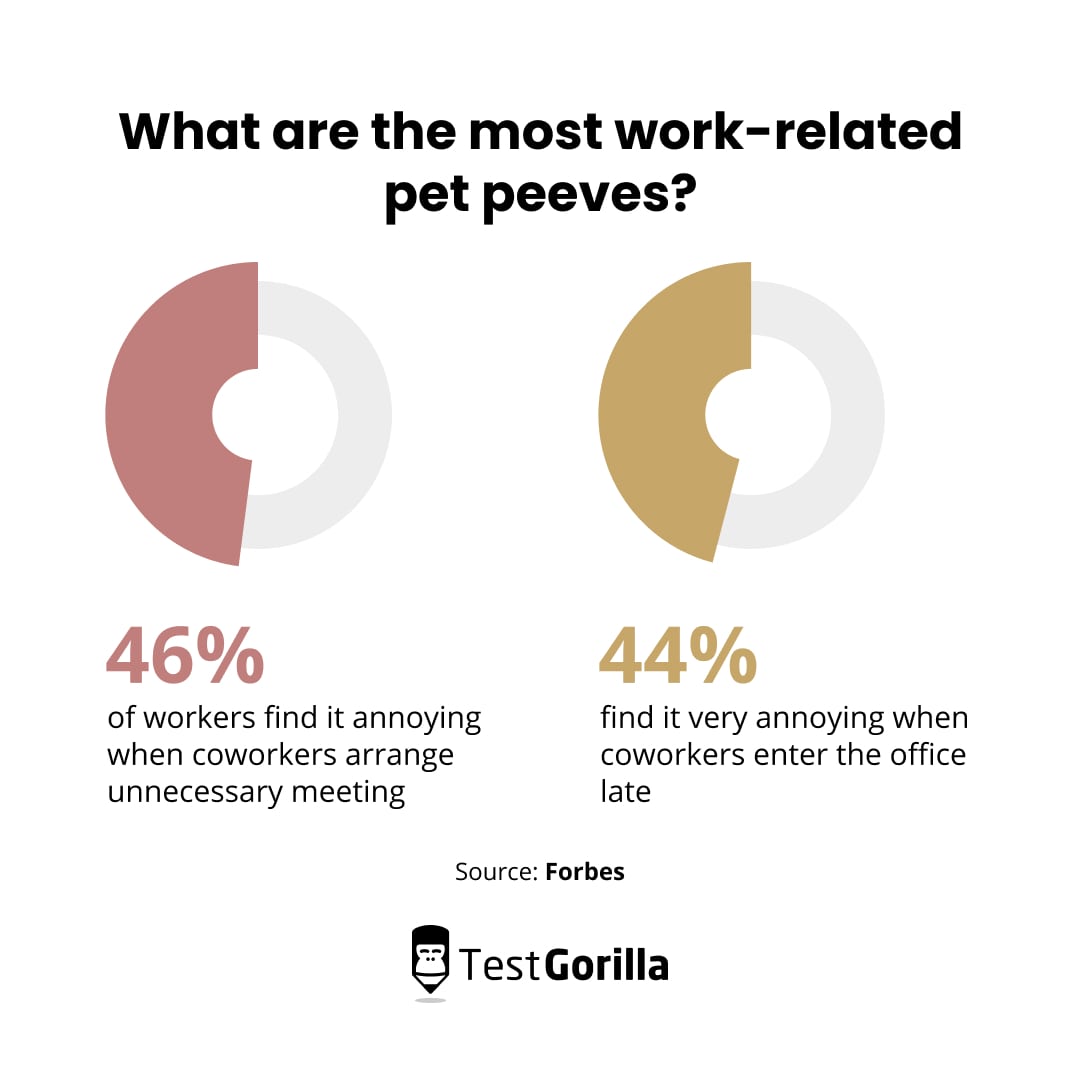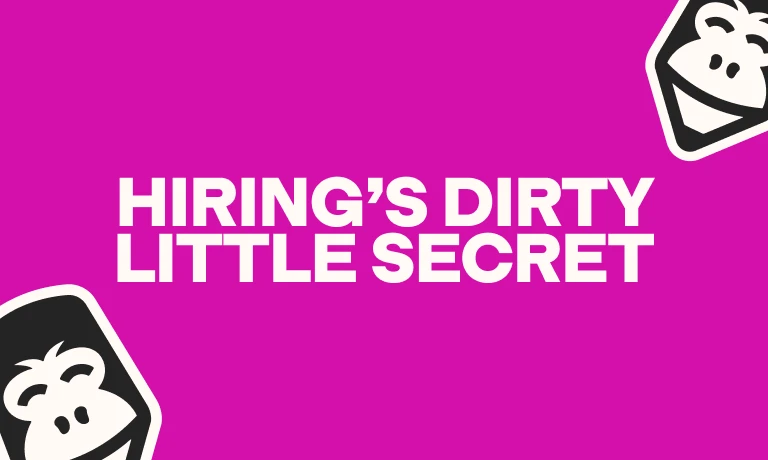25 personality interview questions to help you learn about your candidate
Assessing your candidates’ personalities and traits is crucial for two reasons: You can learn how your applicants will work within your team and determine if their values match your business’s values. But what is the ideal way to review a candidate’s personality?
Two methods will make your assessment process easier. Personality tests, like our Big 5 OCEAN test, are a great option when used correctly, while personality interview questions are the perfect addition for further evaluating your candidates’ personalities.
If you’re looking for the ideal personality questions for your hiring process, check out our 25 questions below and use them to create your own list for interviewing your applicants.
Table of contents
25 personality interview questions related to experience, skills, and behavior
Ask your applicants some of these 25 personality interview questions to learn more about their experience, skills, and behavior in the work environment.
1. How would you complete a task that you initially thought was impossible?
Knowing how your candidates handle challenging tasks is important, as will likely have to solve complex challenges. Asking this personality interview question helps you determine whether your applicant can solve problems, think critically, and step outside their comfort zone.
Applicants should describe their approach to handling problems or challenges when responding to this question, which could include the following problem-solving steps:
Define the challenge or problem
Establish the goals and key requirements
Find out the cause of the problem
Assess the available data
Consider any resources or team members who can assist in solving the problem
Create a plan to solve the challenging task
Execute the plan and work on improvements
If you need to review your applicants’ critical-thinking skills for solving challenging tasks, our Critical Thinking test will help you assess their ability to make sound decisions.
2. In which scenario are you most productive: working in a team or independently?
With this personality interview question, you can learn whether your candidate is a team player or works better as an individual contributor. Although some candidates may be more comfortable working in a team, and others may feel more confident when working independently, top applicants can adapt to the work scenario you offer them.
For example, suppose you are hiring a content writer. Your candidates may have to work with a wider content team and independently to complete articles and emulate their team members’ writing styles.
You may ask follow-up questions, such as, “How would you ensure you communicate efficiently with a team?” or “How would you work as an individual contributor to meet deadlines?” to discover how candidates will adapt to your working environment.
3. Name something you’re passionate about.
Asking applicants this personality interview question will help you learn about any extra traits or experiences they can bring to the company. It may also help you see whether your applicants’ values match your company’s culture.
From hobbies to personal projects, there are many things applicants may be passionate about. Look for answers that convey enthusiasm and indicate that the candidate is well-rounded.
For example, a software developer may be enthusiastic about completing side projects, while a content writer may be passionate about writing blog posts in their free time.
4. Tell me about a time you came up with a creative solution for a challenging problem.
Creative solutions are often highly valuable in a work environment. Applicants who use critical and creative thinking skills to solve complex problems are ones to consider for your vacancy.
For instance, a candidate may have enhanced customer service solutions to match consumers’ evolving expectations or implemented creative incentives to motivate a team.
No matter which creative solution applicants mention, they should reveal two things: more about their creative traits and how successful their creative solutions were.
5. Does your current team consider you an approachable person?
When hiring, it’s important to consider applicants with approachable personality traits. Candidates who are open-minded and easy to collaborate with are more likely to foster a productive environment and support their team members.
Look for applicants who can provide evidence of their approachable traits. For example, do they stay open and listen? Do they have the ideal communication skills to encourage dialogue and support within the team?
Asking this personality interview question may be an important second step to assessing your candidates’ suitability for your role, and combining it with a Communication test makes the assessment easier.
Our test evaluates active listening, written, and spoken communication skills – three key skills that approachable employees should have.
6. Does your current manager consider you a detail-oriented person?
Looking for attention-to-detail traits in a candidate is important for several reasons. A candidate with excellent attention to detail will fulfill their clients’ expectations and enhance the business-client relationship due to good-quality work.
Team members with great attention to detail will also create an environment of accountability for their organization as they take responsibility for errors early in the project. They will also save time and complete projects successfully without errors. Therefore, it’s important to look for detail-oriented and focused candidates.
Assess your applicants’ traits with personality interview questions and an Attention to Detail test for an easy candidate review.
7. Do you consider yourself calm in stressful situations?
While not every applicant will thrive when working in stressful situations, some may have personality traits that help them manage stress effectively. This personality interview question helps determine whether they work well under pressure.
Applicants can respond by providing examples of stressful situations they have faced and how they coped with them. For example, they may have had to prepare for a sales meeting with their team and handled the situation by preparing relevant topics for their agenda before the meeting.
8. Which three adjectives would you use to describe yourself?
This personality interview question is great for learning how your candidates’ personality traits fit into your team and company values, as you can consider whether the adjectives they mention align with your company culture.
For example, if your company values curiosity and constant improvement, you may consider applicants who are driven and keen to learn.
9. What qualities help you ensure you meet deadlines?
When applicants respond to this question, they should provide examples of how their traits or personality types have helped them meet deadlines. For example, candidates may explain that their conscientiousness is essential for meeting deadlines – which research suggests is a positive predictor of job performance.
If you need additional evidence or information about your applicants’ traits, our Enneagram test will help you determine which of the nine personalities and traits best describe them.
10. Name one factor that inspires you to achieve professional goals.
From career progression to challenging themselves professionally, many factors may inspire your applicants to achieve professional goals. Applicants may describe a variety of factors that inspire them, but listen out for responses that express their motivation and passion for developing their abilities and experience.
Applicants may also provide various examples of moments when they achieved their professional goal and describe the factor that motivated them. For instance, applicants may have submitted work before a tight deadline after their manager motivates them to improve their performance.
11. Have you ever had to adapt to a change in your work environment?
Since work environments do not always stay the same, applicants must be flexible and able to adapt to changes, such as management changes or team structure adjustments.
In response to this question, applicants may mention their methods to adapt to work-related changes, such as communicating with new team members or management to understand their work style and collaborate with them.
12. Name your favorite hobby and explain why you enjoy it.
Although there is no link between this interview question and professional experiences, it will help you learn about your applicants’ transferrable social skills.
Some hobbies, such as communication, teamwork, or dedication, can help enhance your applicants’ skills. For instance, candidates may enjoy learning languages in their spare time, which enhances their communication skills and knowledge about other cultures.
13. Which methods do you prefer when learning something new?
From courses and career events to self-teaching and receiving coaching, there are many methods your candidates may prefer when learning something new. When your applicants respond to this interview question, consider whether they are keen to learn new skills and how effectively their approaches help them do this.
This question is also ideal for determining whether your upskilling practices align with the candidates’ preferred learning methods and will help you prepare for the onboarding and training process.
14. Have you ever disagreed with a coworker? Explain how you handled the situation.
When team members disagree, negotiation, mediation skills, and communication can help resolve discrepancies. Applicants with experience resolving disagreements will provide examples of how these skills helped them handle the situation.
For instance, if a software tester creates an issue to fix but a developer disagrees with team members when fixing it, communication skills and negotiation traits may help resolve the situation.
If you need an easy way to assess your candidates’ negotiation traits, our Negotiation test is the ideal solution.
15. Have you ever had to cover for someone at work? How did your traits make the process easier?
This personality interview question tests your applicants’ abilities to adapt to new situations and complete tasks they may be unfamiliar with. Applicants may explain that despite not understanding every duty required when covering for a coworker, their traits may make it easier to complete new tasks.
In this scenario, applicants may be effective communicators, problem solvers, or critical thinkers eager to learn about new responsibilities. These qualities enhance productivity, so ensure you consider applicants with enthusiasm, critical-thinking skills, and problem-solving abilities to handle extra duties when covering for a coworker.
16. Have you ever felt frustrated due to a lack of career progress?
If an applicant has enough experience but doesn’t have the opportunity to progress, they may either feel frustrated or try to initiate a career change. When assessing applicants, consider whether they communicated with their team leader or manager to request new opportunities or responsibilities and additional training.
17. How do you react when receiving negative feedback from a manager?
To enhance their skills, applicants should be receptive to negative feedback and eager to improve. When you ask this personality interview question, look for candidates who don’t feel discouraged when they receive negative feedback.
Consider whether your applicants can provide examples of situations in which they implemented negative feedback and whether their work improved.
18. Have you ever felt disappointed at work? Explain how you handled the scenario.
Various factors may cause your candidates to feel disappointed at work, including encountering challenges, disagreeing with coworkers, or missing deadlines at work. Despite this feeling, top applicants will respond to scenarios by learning from mistakes, resolving disagreements, or enhancing skills to ensure the scenario doesn’t happen again.
Consider whether your applicants can resolve challenging scenarios at work to enhance their output and avoid disappointment in future situations.
19. Do you have any work-related pet peeves?
From arranging unnecessary meetings to noticing that coworkers enter the office late, there are plenty of work-related pet peeves that may frustrate your applicants. 46% of workers find it annoying when coworkers arrange unnecessary meetings, while 44% find it very annoying when coworkers enter the office late.
Look for candidates who can address their frustrations by communicating with coworkers and maintaining high productivity despite these challenges.
20. What is your best soft skill?
Your applicants’ responses to this interview question will help you learn whether they are versatile candidates who can handle complex challenges. And there are many examples of soft skills your applicants may mention, including time management, leadership, problem-solving, and attention to detail.
To evaluate your applicants’ soft skills more fully, our Time Management, Leadership, and People Management and Attention to Detail tests will reveal the most suitable applicants with the best abilities.
21. Name a skill related to this field that you want to improve.
The best responses to this interview question will identify one skill that can enhance your applicants’ productivity. For instance, if you’re hiring a Spanish language teacher to teach English-speaking students, you may find applicants who aim to enhance their English language skills.
22. How would your team describe your passion for this field and work ethic?
Enthusiasm in a candidate can show that they are eager to progress and achieve targets, so consider applicants who are passionate about their work and respond with examples that illustrate their enthusiasm.
For example, a customer service representative may be passionate about enhancing the customer experience by thanking clients for their feedback and implementing their suggestions.
23. Describe the work environment that most closely aligns with your work style.
Asking this interview question will help you learn your applicant’s work style and whether it aligns with the environment you provide.
Does your applicant prefer a collaborative work environment or somewhere that promotes self-improvement? Is your applicant more productive when working independently or as part of a team?
24. Do you consider yourself a problem solver? Provide an example to support your answer.
Problem-solving skills are ideal for various open positions, from software tester roles to editorial and teaching positions, so asking candidates about their problem-solving traits is important.
Applicants should be able to provide examples of situations in which their problem-solving traits helped them overcome an issue. For example, software developers may show determination to find a bug in a program and use logical approaches to debug the system.
To assess your applicants’ problem-solving skills, check out our Problem Solving skill test. It’s ideal for reviewing analytical abilities and skills related to assessing textual information.
25. Describe your values. To what extent are your values aligned with our company culture?
When hiring a candidate, knowing whether their values align with your company will help you learn if they will work well with your team.
As applicants respond to this personality interview question, consider how well they have researched your company culture and understand your expectations. Most candidates will apply to your organization after considering its mission and values, so they should understand what you’re looking for.
Curious about recruiting personality hires? Learn more about making personality hires here.
Why ask personality interview questions during an interview?
From determining how your candidates handle complex work-related situations to learning whether they would work well in your team, you can achieve many hiring goals by asking the right personality interview questions.
If you want to determine whether your candidates’ work style, enthusiasm, and productivity align with your organization’s culture, these questions are ideal.
The best insights on HR and recruitment, delivered to your inbox.
Biweekly updates. No spam. Unsubscribe any time.
When should you use personality interview questions during the hiring process?
Our hiring experts and skills-test professionals recommend that asking personality interview questions is most useful after candidates have completed a personality assessment. Whether you choose a 16 Personality Types test or our Big 5 OCEAN test during candidate sourcing, asking personality interview questions after this phase will help you:
Shortlist applicants faster
Receive discussion points for the interview
Compare two applicants with equal hard skills
Always use skill assessments before an interview to help you save time, conduct more engaging interviews, and make the most informed hiring choices.
Ask your applicants personality interview questions to hire the right candidate
Knowing whether you have made the correct hiring choice can be difficult, but asking personality interview questions and using personality assessments will help you ensure your new employee is the ideal fit for your organization.
Remember that when you ask personality interview questions, you should avoid asking questions about your candidates’ religion, marital status, age, disability, race, or ethnicity.
With our list of personality interview questions, you’re ready to find suitable candidates. Test your applicants’ skills using the TestGorilla platform and hire the right individuals for your team and business.
Related posts
You've scrolled this far
Why not try TestGorilla for free, and see what happens when you put skills first.




















